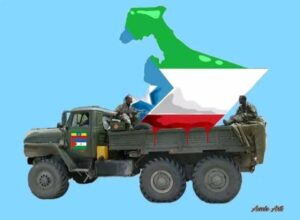In the heart of Jigjiga, outside the Somali Regional President’s Office, a young man was beaten by the very people sworn to protect Ethiopia’s citizens—the federal army. His story is one of many, and it speaks to a deeper, darker reality that Somalis in Ethiopia know too well: we are treated not as citizens, but as suspects.
“They stopped near the president’s office,” he told us. “They beat us with rifles and sticks. They called us Al-Shabaab. They said we didn’t belong here.”
This is not a battlefield. It is a peaceful corner of a city, just two kilometers from an Ethiopian National Defense Forces (ENDF) base. Yet the soldiers chose to come into the city—not to defend it, but to intimidate, insult, and injure unarmed youth.
Let us be clear: this is not an isolated act of brutality. It is part of a sustained pattern of abuse, neglect, and dehumanization directed at the Somali people. And it is time we say it plainly—the ENDF treats the Somali region as an occupied territory, not a part of the federation.
Over the last five years, there have been chilling examples. On March 27, 2023, in the town of Aysha, two Somali youths were shot dead in broad daylight after meeting with community members protesting the federal army’s role in the Garba-Issa massacre—a slaughter that left over 400 civilians dead and forced 200,000 from their homes.
In Qabridahare, five innocent civilians were deliberately killed by a federal soldier. In Jigjiga Airport, a female Somali parliament member was gunned down by a federal soldier—an act met with silence.
Where is the outrage? Where is the justice?
It is also no coincidence that the ENDF is almost entirely devoid of Somali representation. Our youth are not recruited. Our voices are not heard. We are excluded, and then punished for being “outsiders” in our own land. This is not just about military misconduct—it is about systemic erasure.
The Ethiopian state must confront an uncomfortable truth: the Somali region cannot be pacified through fear. True stability and unity come through respect, inclusion, and justice. That begins by holding soldiers accountable for crimes against civilians and ensuring that federal institutions reflect the diversity of the country—not just in words, but in power and presence.
As Somalis, we are not asking for special treatment. We are demanding basic dignity. We are demanding that our lives, our voices, and our communities be seen and valued as part of Ethiopia—not as targets, not as threats, but as people.
Silence will only embolden those who brutalize. But truth-telling is the first step toward justice.

